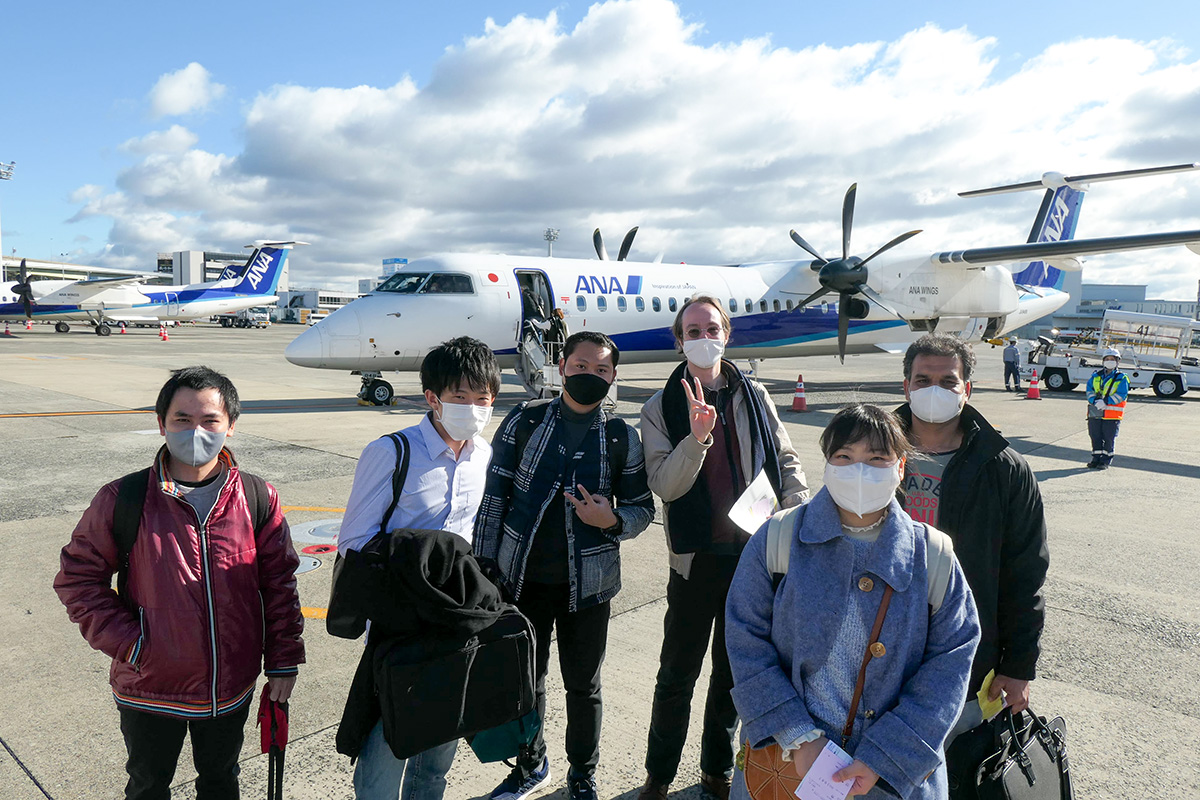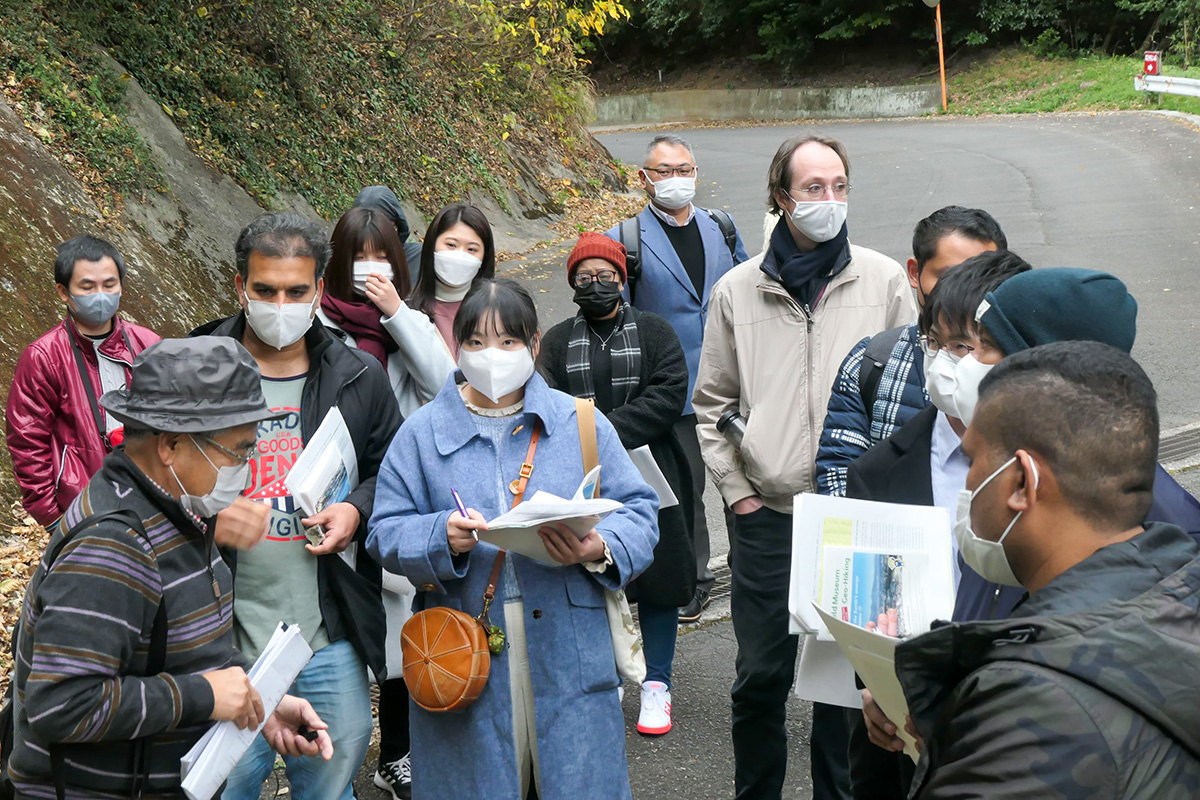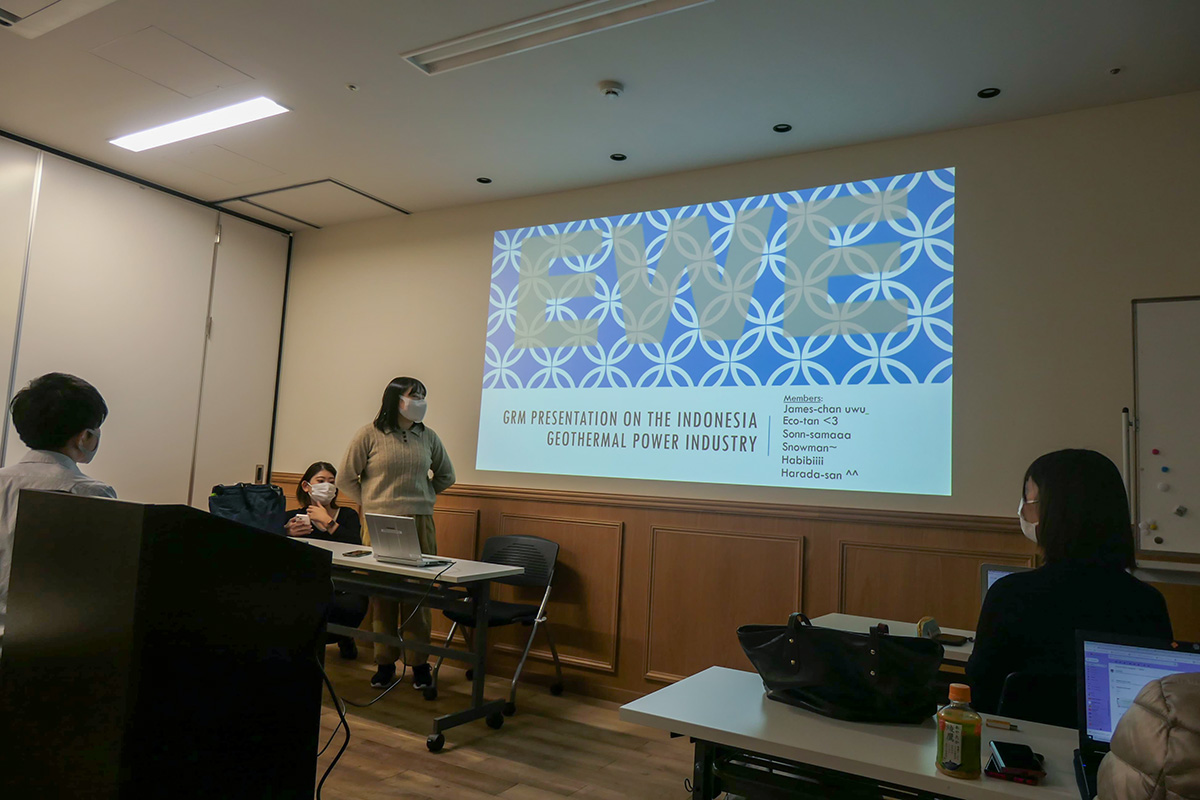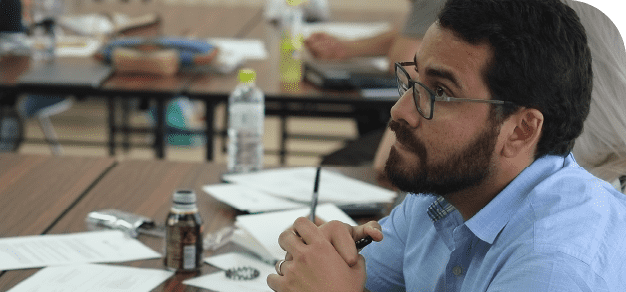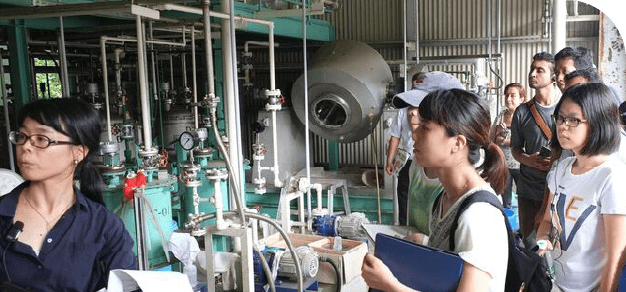GRM Students’ Reports
GRM Program Completion Report
Graduate School of Social Studies 孫 心悦 (Sun Xinyue)
2024/01/17
The GRM program has played an important role in my academic journey and has been a means of connecting my transition from an electrical engineering background to social work.
My decision to enroll in the GRM program was to cross interdisciplinary fields. My undergraduate specialty was electrical engineering, and after completing a thesis focused on renewable energy systems, I switched specialties to social work for my master's degree due to personal interest. This change of specialization brought to light the need to integrate technical knowledge with the social sciences, as I believe that complex social issues can be effectively addressed by integrating technological and humanitarian knowledge. The emphasis on interdisciplinary collaboration emphasized by the GRM program aligned with my aspirations.
Below, I will elaborate on the diverse knowledge I gained from the program, the experience of cooperation, and the indirect but important implications it had for my dissertation.
First, I find the interdisciplinary learning opportunities provided by the GRM program to be very beneficial to me. The GRM program provided me with the opportunity to go beyond the traditional technical framework and to be exposed to subjects as diverse as economics and geography. This allowed me to understand how different disciplines work together and interact with each other.
For example, in my economics class, I studied John Rawls' theory of justice. This theory provided me with a better understanding of social inequality and justice, as well as insight into how individual rights and freedoms should be equally coordinated. In the area of social welfare, social justice is also discussed. Through the GRM course, I was able to check the fundamental value principles of social welfare from an interdisciplinary perspective, including economics, which has influenced my approach to social welfare and contributed to a more inclusive and equitable service delivery. This has influenced my approach to social welfare and contributed to the provision of more comprehensive services.
I also deepened my understanding of social welfare techniques through lectures by guest speakers in a class called Capacity Development for Coexistence and Cooperative Works. The lecture demonstrated how improved access to rural roads can contribute to youth employment promotion through NGOs' projects in developing countries. Through this lecture, I gained a deeper understanding that the essence of empowerment lies in the internal strength of the local people and their ability to address local challenges. I also saw that projects require the collaboration of knowledge and talent from a variety of disciplines, including engineering, social work, support skills, and economics. I recognized that without the cooperation of knowledge and talents from various disciplines, even in support activities, it would be difficult to keep the project running smoothly and successfully.
As mentioned above, the GRM program provided me with interdisciplinary learning opportunities, which helped me broaden my horizons and gain a comprehensive understanding of different areas of knowledge.
Second, working with the diverse team in the GRM program was an invaluable experience. The different cultural backgrounds of the team members provided an excellent opportunity to gain new perspectives.
Although I am an international student, I can see similarities between Chinese and Japanese culture and thought processes due to Confucian culture. On the other hand, working with members from Afghanistan, Pakistan, the Netherlands, and the Philippines through group work in the GRM program was a great challenge in understanding the values and perspectives of different cultures. However, discussions and exchanges of ideas from different perspectives can result in rich ideas and new approaches for the project. Working together, members from different countries can help expand global perspectives and find more effective solutions. Working with members from different cultural backgrounds has helped me develop skills in finding common understandings, reconciling different perspectives, and working together toward a goal. In addition, the skills I gained through my experience as a team leader in coordinating different viewpoints, effectively assigning tasks, and managing the overall progress of the project have greatly contributed to my leadership and teamwork skills. As an international student, I am likely to participate in international programs in the future, and these skills will be extremely beneficial in my future career. Working with members from different cultural backgrounds has taught me the importance of communication and collaboration under leadership. Working with members from different countries helped me develop flexibility, the ability to interact, and insight into different perspectives. Furthermore, as members from different cultural backgrounds worked together, they were able to expand their international perspectives and deepen their understanding of different cultures. This is a great asset in future cross-cultural communication and cooperation. This will be a very useful skill in future academic and professional settings.
And while taking the GRM program, I was able to improve my English language skills and develop confidence in using English. English skills are important in situations where one needs to communicate with members of different nationalities and cultural backgrounds. The diverse interdisciplinary learning opportunities within the program require the sharing of knowledge and experiences from different areas of expertise. The English language skills and confidence I gained through the GRM program have been invaluable not only in my research, but also in my job search. but also, the ability to understand and communicate effectively with people from different cultures and backgrounds. This will be of great help to me in my future projects in the increasingly globalized workplace.
Finally, I would like to discuss the relevance of the GRM program to my doctoral dissertation, which may not be directly related to my dissertation, but provides valuable insights that indirectly influence my research.
For example, the GRM program focuses on the social science and technological challenges associated with the introduction of new technologies. Similarly, my research is concerned with the social implications of technology adoption in the development of home-based services for the elderly in China. From this, I see similarities in the challenges and clues regarding the social impact of technology integration.
Specifically, my doctoral dissertation focuses on the issue of fragmentation in social residential care services in urban China. In order to solve the problems of fragmentation, such as the abuse of social resources and fragmented care, I proposed ways to promote networking around community-based in-home eldercare services in the future. As part of the study, I also examined the current trend of fragmentation measures in China. As a result, the integration of resources has been raised, and the use of new information technologies such as ICT has been emphasized as a means of promoting coordination and collaboration among the various agencies involved.
On the other hand, through the field visits and group work in the GRM program, I was able to understand the acceptability issues and operational challenges to technology that arise when introducing new technologies such as geothermal energy, etc. Similarly, the sociological and operational challenges also emerged in my research by investigating the current state of eldercare services in China. These common challenges suggest universal problems posed by the introduction of new technologies and services.
For example, the problems of residents moving out of their homes, noise, and religion associated with the construction of renewable energy power plants were mentioned. In the case study discussed in Group Work III, a rural community in Indonesia is rich in geothermal power resources, but local residents are very vocal in their opposition to geothermal power generation, as they perceive the development of geothermal power generation as disturbing God's rest. From this case study, I understand that we cannot just focus on the benefits that the use of a new technology brings, but also ignore people's attitudes toward that technology. Similarly, when introducing ICT and IoT technologies into service projects for the elderly, it is necessary to carefully consider not only the convenience of the service side, but also whether the elderly will accept the new technology and what challenges it may create.
In short, the GRM program provided a valuable perspective on ethical considerations regarding technology integration. There are differing views in the social welfare arena on how ICT technology and other technologies should be used to support older adults. These debates are similar to the debates about the ethical use of technology explored in the GRM program, and the diverse perspectives encountered in the GRM helped me to approach these debates with a more open mind and an empathetic attitude.
In summary, although not directly linked to my doctoral dissertation, GRM had an indirect impact on my research by providing insights into the social implications of technology integration, ethical considerations, and interdisciplinary perspectives.
I am deeply grateful for the opportunities and knowledge that GRM has provided. The program has helped me move between the fields of technology and social welfare and facilitated a journey of inclusive academic and personal growth that has prepared me to meaningfully impact complex societal challenges through interdisciplinary collaboration and integration of diverse knowledge.
